- Date & Time: Friday, April 29, 2016; 12:00 PM - 1:00 PM
Speaker: Yu Zhang, MIT
Research Area: Speech & Audio
Abstract 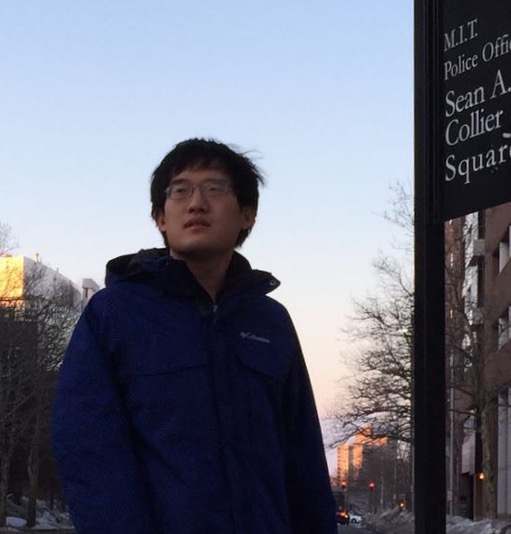 A recurrent neural network (RNN) is a class of neural network models where connections between its neurons form a directed cycle. This creates an internal state of the network which allows it to exhibit dynamic temporal behavior. Recently the RNN-based acoustic models greatly improved automatic speech recognition (ASR) accuracy on many tasks, such as an advanced version of the RNN, which exploits a structure called long-short-term memory (LSTM). However, ASR performance with distant microphones, low resources, noisy, reverberant conditions, and on multi-talker speech are still far from satisfactory as compared to humans. To address these issues, we develop new strucute of RNNs inspired by two principles: (1) the structure follows the intuition of human speech recognition; (2) the structure is easy to optimize. The talk will go beyond basic RNNs, introduce prediction-adaptation-correction RNNs (PAC-RNNs) and highway LSTMs (HLSTMs). It studies both uni-directional and bi-direcitonal RNNs and discriminative training also applied on top the RNNs. For efficient training of such RNNs, the talk will describe two algorithms for learning their parameters in some detail: (1) Latency-Controlled bi-directional model training; and (2) Two pass forward computation for sequence training. Finally, this talk will analyze the advantages and disadvantages of different variants and propose future directions.
A recurrent neural network (RNN) is a class of neural network models where connections between its neurons form a directed cycle. This creates an internal state of the network which allows it to exhibit dynamic temporal behavior. Recently the RNN-based acoustic models greatly improved automatic speech recognition (ASR) accuracy on many tasks, such as an advanced version of the RNN, which exploits a structure called long-short-term memory (LSTM). However, ASR performance with distant microphones, low resources, noisy, reverberant conditions, and on multi-talker speech are still far from satisfactory as compared to humans. To address these issues, we develop new strucute of RNNs inspired by two principles: (1) the structure follows the intuition of human speech recognition; (2) the structure is easy to optimize. The talk will go beyond basic RNNs, introduce prediction-adaptation-correction RNNs (PAC-RNNs) and highway LSTMs (HLSTMs). It studies both uni-directional and bi-direcitonal RNNs and discriminative training also applied on top the RNNs. For efficient training of such RNNs, the talk will describe two algorithms for learning their parameters in some detail: (1) Latency-Controlled bi-directional model training; and (2) Two pass forward computation for sequence training. Finally, this talk will analyze the advantages and disadvantages of different variants and propose future directions.
-
- Date: Thursday, June 2, 2016
Location: Norton's Woods Conference Center at American Academy of Arts & Sciences, Cambridge, MA
MERL Contacts: Elizabeth Phillips; Anthony Vetro Brief - A celebration event to mark MERL's 25th anniversary will be held on Thursday, June 2 at the Norton's Woods Conference Center at the American Academy of Arts & Sciences in Cambridge, MA. This event will feature keynote talks, panel sessions, and a research showcase. The event itself is invitation-only, but videos and other highlights will be made available online. Further details about the program can be obtained at the link below.
-
- Date & Time: Tuesday, March 15, 2016; 12:00 PM - 12:45 PM
Speaker: Prof. Kazuya Takeda, Nagoya University
Research Area: Speech & Audio
Abstract 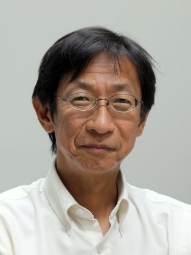 Thanks to advanced "internet of things" (IoT) technologies, situation-specific human behavior has become an area of development for practical applications involving signal processing. One important area of development of such practical applications is driving behavior research. Since 1999, I have been collecting driving behavior data in a wide range of signal modalities, including speech/sound, video, physical/physiological sensors, CAN bus, LIDAR and GNSS. The objective of this data collection is to evaluate how well signal models can represent human behavior while driving. In this talk, I would like to summarize our 10 years of study of driving behavior signal processing, which has been based on these signal corpora. In particular, statistical signal models of interactions between traffic contexts and driving behavior, i.e., stochastic driver modeling, will be discussed, in the context of risky lane change detection. I greatly look forward to discussing the scalability of such corpus-based approaches, which could be applied to almost any traffic situation.
Thanks to advanced "internet of things" (IoT) technologies, situation-specific human behavior has become an area of development for practical applications involving signal processing. One important area of development of such practical applications is driving behavior research. Since 1999, I have been collecting driving behavior data in a wide range of signal modalities, including speech/sound, video, physical/physiological sensors, CAN bus, LIDAR and GNSS. The objective of this data collection is to evaluate how well signal models can represent human behavior while driving. In this talk, I would like to summarize our 10 years of study of driving behavior signal processing, which has been based on these signal corpora. In particular, statistical signal models of interactions between traffic contexts and driving behavior, i.e., stochastic driver modeling, will be discussed, in the context of risky lane change detection. I greatly look forward to discussing the scalability of such corpus-based approaches, which could be applied to almost any traffic situation.
-
- Date & Time: Tuesday, March 15, 2016; 12:45 PM - 1:30 PM
Speaker: Prof. Hirofumi Aoki, Nagoya University
Research Area: Speech & Audio
Abstract 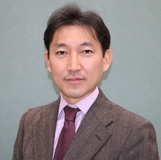 Driving requires a complex skill that is involved with the vehicle itself (e.g., speed control and instrument operation), other road users (e.g., other vehicles, pedestrians), surrounding environment, and so on. During driving, visual cues are the main source to supply information to the brain. In order to stabilize the visual information when you are moving, the eyes move to the opposite direction based on the input to the vestibular system. This involuntary eye movement is called as the vestibulo-ocular reflex (VOR) and the physiological models have been studied so far. Obinata et al. found that the VOR can be used to estimate mental workload. Since then, our research group has been developing methods to quantitatively estimate mental workload during driving by means of reflex eye movement. In this talk, I will explain the basic mechanism of the reflex eye movement and how to apply for mental workload estimation. I also introduce the latest work to combine the VOR and OKR (optokinetic reflex) models for naturalistic driving environment.
Driving requires a complex skill that is involved with the vehicle itself (e.g., speed control and instrument operation), other road users (e.g., other vehicles, pedestrians), surrounding environment, and so on. During driving, visual cues are the main source to supply information to the brain. In order to stabilize the visual information when you are moving, the eyes move to the opposite direction based on the input to the vestibular system. This involuntary eye movement is called as the vestibulo-ocular reflex (VOR) and the physiological models have been studied so far. Obinata et al. found that the VOR can be used to estimate mental workload. Since then, our research group has been developing methods to quantitatively estimate mental workload during driving by means of reflex eye movement. In this talk, I will explain the basic mechanism of the reflex eye movement and how to apply for mental workload estimation. I also introduce the latest work to combine the VOR and OKR (optokinetic reflex) models for naturalistic driving environment.
-
- Date & Time: Tuesday, February 16, 2016; 12:00 PM - 1:00 PM
Speaker: Dr. Najim Dehak, MIT
Research Area: Speech & Audio
Abstract  Recently, there has been a great increase of interest in the field of emotion recognition based on different human modalities, such as speech, heart rate etc. Emotion recognition systems can be very useful in several areas, such as medical and telecommunications. In the medical field, identifying the emotions can be an important tool for detecting and monitoring patients with mental health disorder. In addition, the identification of the emotional state from voice provides opportunities for the development of automated dialogue system capable of producing reports to the physician based on frequent phone communication between the system and the patients. In this talk, we will describe a health related application of using emotion recognition system based on human voices in order to detect and monitor the emotion state of people.
Recently, there has been a great increase of interest in the field of emotion recognition based on different human modalities, such as speech, heart rate etc. Emotion recognition systems can be very useful in several areas, such as medical and telecommunications. In the medical field, identifying the emotions can be an important tool for detecting and monitoring patients with mental health disorder. In addition, the identification of the emotional state from voice provides opportunities for the development of automated dialogue system capable of producing reports to the physician based on frequent phone communication between the system and the patients. In this talk, we will describe a health related application of using emotion recognition system based on human voices in order to detect and monitor the emotion state of people.
-
- Date: Friday, November 6, 2015
Location: Mitsubishi Electric Cooling & Heating
MERL Contact: Christopher R. Laughman
Research Area: Data Analytics
Brief - Chris Laughman of MERL and Kevin Miskewicz of MEUS-HVAC led a webinar on Friday, November 6 with over 20 leading HVAC industry trade publications on new products that are being released, as well as the role that MERL plays in advancing the forefront of technology within Mitsubishi Electric. Titled "Inventing the Future of VRF (and Other Neat Stuff)", they discussed the innovations embodied in the new L-generation City-Multi system, as well as trends in the HVAC industry and some recently published MERL research in the HVAC area.
-
- Date & Time: Monday, November 23, 2015; 12:00 PM
Speaker: Manuchehr Aminian, University of North Carolina, Chapel Hill Abstract 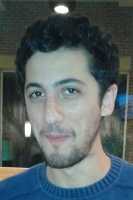 The classic work by G.I. Taylor describes the enhanced longitudinal diffusivity of a passive tracer subjected to laminar pipe flow. Much work since then has gone into extending this result particularly in calculating the evolution of the scalar variance. However, less work has been done to describe the evolution of asymmetry in the distribution. We present the results from a modeling effort to understand how the higher moments of the tracer distribution depend on geometry based off of explicit results in the circular pipe. We do this via analysis of "channel-limiting" geometries (rectangular ducts and elliptical pipes parameterized by their aspect ratio), using both new analytical tools and Monte Carlo simulation, which have revealed a wealth of nontrivial behavior of the distributions at short and intermediate time.
The classic work by G.I. Taylor describes the enhanced longitudinal diffusivity of a passive tracer subjected to laminar pipe flow. Much work since then has gone into extending this result particularly in calculating the evolution of the scalar variance. However, less work has been done to describe the evolution of asymmetry in the distribution. We present the results from a modeling effort to understand how the higher moments of the tracer distribution depend on geometry based off of explicit results in the circular pipe. We do this via analysis of "channel-limiting" geometries (rectangular ducts and elliptical pipes parameterized by their aspect ratio), using both new analytical tools and Monte Carlo simulation, which have revealed a wealth of nontrivial behavior of the distributions at short and intermediate time.
-
- Date: Thursday, October 22, 2015
Location: Google, New York City, NY
MERL Contact: Jonathan Le Roux
Research Area: Speech & Audio
Brief - SANE 2015, a one-day event gathering researchers and students in speech and audio from the Northeast of the American continent, will be held on Thursday October 22, 2015 at Google, in New York City, NY.
It is a follow-up to SANE 2012, held at Mitsubishi Electric Research Labs (MERL), SANE 2013, held at Columbia University, and SANE 2014, held at MIT, which each gathered 70 to 90 researchers and students.
SANE 2015 will feature invited talks by leading researchers from the Northeast, as well as from the international community: Rohit Prasad (Amazon), Michael Mandel (Brooklyn College, CUNY), Ron Weiss (Google), John Hershey (MERL), Pablo Sprechmann (NYU), Tuomas Virtanen (Tampere University of Technology), and Paris Smaragdis (UIUC). It will also feature a lively poster session during lunch time, open to both students and researchers.
SANE 2015 is organized by Jonathan Le Roux (MERL), Hank Liao (Google), Andrew Senior (Google), and John R. Hershey (MERL).
-
- Date & Time: Tuesday, August 4, 2015; 12:00
Location: Mitsubishi Electric Research Laboratories
MERL Contacts: Elizabeth Phillips; Jinyun Zhang Brief - To celebrate "Women in Science at MERL," a luncheon event was organized on August 4. Eleven female interns, three female researchers, and female members of HQ staff, interns, hosts/managers and MERL executives participated in that event. All female interns introduced their research projects and their positive experiences at MERL; female researchers shared their own career development stories; and at the end all discussed how to be successful in the field of science. Every participant was inspired to continue contributing to the future of science.
-
- Date: Wednesday, July 1, 2015
Location: Torino, Italy
MERL Contact: Anthony Vetro Brief - Anthony Vetro is the General Co-chair of ICME 2015, the IEEE International Conference on Multimedia & Expo, to be held in Torino, Italy, in July 2015.
-
- Date & Time: Friday, December 5, 2014; 12:00 noon - 2:00 pm
Location: Tufts University, Halligan Hall, Room 102
MERL Contact: Petros T. Boufounos Brief - Come learn about MERL, our internships and our career options.
Mitsubishi Electric Research Labs (MERL) is home to some of the world's leading experts conducting fundamental and applied research in a variety of areas, such as Computer Vision, Audio & Video Processing, Digital Communications, Data Analytics, Mechatronics and Algorithms. Our overriding vision is to deliver innovation that has a lasting impact on the world--innovation that will be remembered 100 years from now.
Each year, we hire 40-60 talented and motivated graduate students for summer internships. Come learn more about the work we do and meet with some of our researchers. The reception will include an a brief overview of our research and some demos. We will also have pizza and cupcakes!
For those of you ready to graduate, we also have several research staff and post-doc openings. Hiring managers and researchers will be on hand to discuss these career opportunities at MERL.
Session Agenda
12:00 - 12:15 Welcome, sign-in
12:15 - 12:30 Research overview
12:30 - 1:30 Demos & discussion.
-
- Date & Time: Monday, November 17, 2014; 1:00-2:30 pm
Location: Northeastern University, Curry Student Center - Room 340
MERL Contact: Anthony Vetro Brief - Mitsubishi Electric Research Labs (MERL) conducts fundamental and applied research in the areas of signal processing, optimization and control. Each year, we hire 40-60 talented and motivated graduate students for summer internships. Come learn more about the work we do and meet with our researchers. The reception will include an a brief overview of our research and some demos, as well as light snacks and refreshments.
For those of you that are ready to graduate, we also have several research staff and post-doc openings. Hiring managers will be on hand to discuss these career opportunities at MERL.
Session Agenda
1:00 - 1:15 Welcome, sign-in
1:15 - 1:30 Research overview
1:30 - 2:30 Demos & discussion.
-
- Date: Thursday, October 23, 2014
Location: Mitsubishi Electric Research Laboratories (MERL)
MERL Contact: Jonathan Le Roux
Research Area: Speech & Audio
Brief - SANE 2014, a one-day event gathering researchers and students in speech and audio from the Northeast of the American continent, will be held on Thursday October 23, 2014 at MIT, in Cambridge, MA. It is a follow-up to SANE 2012, held at Mitsubishi Electric Research Labs (MERL), and SANE 2013, held at Columbia University, which each gathered around 70 researchers and students. SANE 2014 will feature invited talks by leading researchers from the Northeast as well as Europe: Najim Dehak (MIT), Hakan Erdogan (MERL/Sabanci University), Gael Richard (Telecom ParisTech), George Saon (IBM Research), Andrew Senior (Google Research), Stavros Tsakalidis (BBN - Raytheon), and David Wingate (Lyric). It will also feature a lively poster session during lunch time, open to both students and researchers. SANE 2014 is organized by Jonathan Le Roux (MERL), Jim Glass (MIT), and John R. Hershey (MERL).
-
- Date: Monday, January 13, 2014 - Friday, January 17, 2014
Location: San Jose, CA
MERL Contact: Anthony Vetro Brief - MERL is a sponsor for the 107th MPEG meeting to be held in San Jose, CA, in January 2014. MERL researcher Anthony Vetro serves as Head of the US Delegation to MPEG.
-
- Date & Time: Wednesday, November 6, 2013; 1:00 PM - 3:00 PM
Location: MIT, Kiva room @CSAIL
MERL Contact: Matthew Brand Brief - Every year, MIT neighbor Mitsubishi Electric Research Labs hires 40-60 talented and motivated graduate students for summer internships in CS/EE-oriented research projects, aimed at real-world impact and high-quality publications. Join us for our kick-off recruiting reception at the Kiva/Patel room Wednesday 1-3pm. There will be a short overview of current research areas, confections, and MERL researchers on hand to discuss research opportunities. .
-
- Date & Time: Thursday, October 24, 2013; 8:45 AM - 5:00 PM
Location: Columbia University
MERL Contact: Jonathan Le Roux
Research Area: Speech & Audio
Brief - SANE 2013, a one-day event gathering researchers and students in speech and audio from the Northeast of the American continent, will be held on Thursday October 24, 2013 at Columbia University, in New York City.
A follow-up to SANE 2012 held in October 2012 at MERL in Cambridge, MA, this year's SANE will be held in conjunction with the WASPAA workshop, held October 20-23 in upstate New York. WASPAA attendees are welcome and encouraged to attend SANE.
SANE 2013 will feature invited speakers from the Northeast, as well as from the international community. It will also feature a lively poster session during lunch time, open to both students and researchers.
SANE 2013 is organized by Prof. Dan Ellis (Columbia University), Jonathan Le Roux (MERL) and John R. Hershey (MERL).
-
- Date & Time: Friday, October 18, 2013; 12:00 PM
Speaker: Dr. Shreyas Sundaram, University of Waterloo Abstract 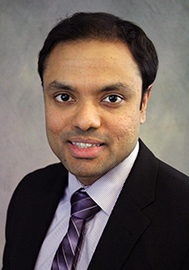 This talk will describe a method to stabilize a plant with a network of resource-constrained wireless nodes. As opposed to traditional networked control schemes where the nodes simply route information to and from a dedicated controller, our approach treats the network itself as the controller. Specifically, we formulate a strategy where each node repeatedly updates its state to be a linear combination of the states of neighboring nodes. We show that this causes the entire network to behave as a linear dynamical system, with sparsity constraints imposed by the network topology. We provide a numerical design procedure to determine the appropriate linear combinations for each node so that the transmissions of the nodes closest to the actuators are stabilizing. We also make connections to decentralized control theory and the concept of fixed modes to provide topological conditions under which stabilization is possible. We show that this "Wireless Control Network" requires low computational and communication overhead, simplifies transmission scheduling, and enables compositional design. We also consider the issue of security in this control scheme. Using structured system theory, we show that a certain number of malicious or misbehaving nodes can be detected and identified provided that the connectivity of the network is sufficiently high.
This talk will describe a method to stabilize a plant with a network of resource-constrained wireless nodes. As opposed to traditional networked control schemes where the nodes simply route information to and from a dedicated controller, our approach treats the network itself as the controller. Specifically, we formulate a strategy where each node repeatedly updates its state to be a linear combination of the states of neighboring nodes. We show that this causes the entire network to behave as a linear dynamical system, with sparsity constraints imposed by the network topology. We provide a numerical design procedure to determine the appropriate linear combinations for each node so that the transmissions of the nodes closest to the actuators are stabilizing. We also make connections to decentralized control theory and the concept of fixed modes to provide topological conditions under which stabilization is possible. We show that this "Wireless Control Network" requires low computational and communication overhead, simplifies transmission scheduling, and enables compositional design. We also consider the issue of security in this control scheme. Using structured system theory, we show that a certain number of malicious or misbehaving nodes can be detected and identified provided that the connectivity of the network is sufficiently high.
-
- Date & Time: Thursday, October 17, 2013; 12:00 PM
Speaker: Prof. Laurent Daudet, Paris Diderot University, France
MERL Host: Jonathan Le Roux
Research Area: Speech & Audio
Abstract  In acoustics, one may wish to acquire a wavefield over a whole spatial domain, while we can only make point measurements (ie, with microphones). Even with few sources, this remains a difficult problem because of reverberation, which can be hard to characterize. This can be seen as a sampling / interpolation problem, and it raises a number of interesting questions: how many sample points are needed, where to choose the sampling points, etc. In this presentation, we will review some case studies, in 2D (vibrating plates) and 3D (room acoustics), with numerical and experimental data, where we have developed sparse models, possibly with additional 'structures', based on a physical modeling of the acoustic field. These type of models are well suited to reconstruction techniques known as compressed sensing. These principles can also be used for sub-nyquist optical imaging : we will show preliminary experimental results of a new compressive imager, remarkably simple in its principle, using a multiply scattering medium.
In acoustics, one may wish to acquire a wavefield over a whole spatial domain, while we can only make point measurements (ie, with microphones). Even with few sources, this remains a difficult problem because of reverberation, which can be hard to characterize. This can be seen as a sampling / interpolation problem, and it raises a number of interesting questions: how many sample points are needed, where to choose the sampling points, etc. In this presentation, we will review some case studies, in 2D (vibrating plates) and 3D (room acoustics), with numerical and experimental data, where we have developed sparse models, possibly with additional 'structures', based on a physical modeling of the acoustic field. These type of models are well suited to reconstruction techniques known as compressed sensing. These principles can also be used for sub-nyquist optical imaging : we will show preliminary experimental results of a new compressive imager, remarkably simple in its principle, using a multiply scattering medium.
-
- Date & Time: Friday, October 4, 2013; 12:00 PM
Speaker: Dr. Goksel Dedeoglu, Texas Instruments
Research Area: Computer Vision
Abstract 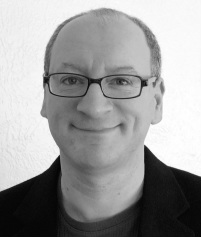 There are growing needs to accelerate computer vision algorithms on embedded processors for wide-ranging equipment including mobile phones, network cameras, robots, and automotive safety systems. In our Vision R&D group, we conduct various projects to understand how the vision requirements can be best addressed on Digital Signal Processors (DSP), where the compute bottlenecks are, and how we should evolve our hardware & software architectures to meet our customers' future needs. Towards this end, we build prototypes wherein we design and optimize embedded software for real-world application performance and robustness. In this talk, I will provide examples of vision problems that we have recently tackled.
There are growing needs to accelerate computer vision algorithms on embedded processors for wide-ranging equipment including mobile phones, network cameras, robots, and automotive safety systems. In our Vision R&D group, we conduct various projects to understand how the vision requirements can be best addressed on Digital Signal Processors (DSP), where the compute bottlenecks are, and how we should evolve our hardware & software architectures to meet our customers' future needs. Towards this end, we build prototypes wherein we design and optimize embedded software for real-world application performance and robustness. In this talk, I will provide examples of vision problems that we have recently tackled.
-
- Date & Time: Friday, September 6, 2013; 12:00 PM
Speaker: Dr. Davide M. Raimondo, University of Pavia, Italy
MERL Host: Stefano Di Cairano Abstract 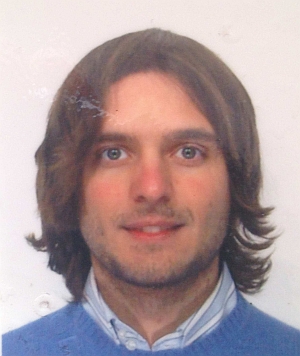 Although there are many fault diagnosis algorithms available, there has been very little work on the design or modification of control inputs with the aim of increasing the detectability and isolability of faults. The use of such inputs has clear potential for overcoming a central difficulty in fault detection, which is to distinguish the effects of faults from those of disturbances, process uncertainties, etc. Accordingly, the use of active inputs could be a transformative technology in industry, provided that such inputs can be computed reliably and efficiently.
Although there are many fault diagnosis algorithms available, there has been very little work on the design or modification of control inputs with the aim of increasing the detectability and isolability of faults. The use of such inputs has clear potential for overcoming a central difficulty in fault detection, which is to distinguish the effects of faults from those of disturbances, process uncertainties, etc. Accordingly, the use of active inputs could be a transformative technology in industry, provided that such inputs can be computed reliably and efficiently.
This presentation discusses new methods for computing active inputs that guarantee that the input-output data of a process will be sufficient to correctly identify a fault from a given library of possible faults. This problem is inherently nonconvex and has a combinatorial dependence on the number of faults considered. To address this, a new formulation is considered, along with related approximations, that is amenable to efficient solution using standard optimization packages (e.g. CPLEX). The theoretical contributions combine ideas from reachability analysis, set-based computations, and optimization theory to exploit detailed problem structure and thereby manage the problem complexity. Comparisons with an existing method show that the proposed formulation provides a dramatic reduction in the required computational effort.
-
- Date & Time: Friday, August 23, 2013; 12:00 PM
Speaker: Dr Cornel Sultan, Virginia Tech Abstract 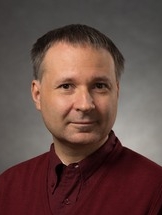 Coordinate coupling raises serious numerical, analysis, and control design problems that grow with the size of the system. On the other hand, decoupled dynamic equations facilitate all of the above processes since each equation can be treated independently. Unfortunately, due to the inherent heterogeneity typical of most practical, complex systems, these are not naturally decoupled so developing accurate enough decoupled approximations is of interest.
Coordinate coupling raises serious numerical, analysis, and control design problems that grow with the size of the system. On the other hand, decoupled dynamic equations facilitate all of the above processes since each equation can be treated independently. Unfortunately, due to the inherent heterogeneity typical of most practical, complex systems, these are not naturally decoupled so developing accurate enough decoupled approximations is of interest.
In this talk the issue of building such accurate decoupled approximations is addressed by leveraging concepts from robust control theory. Specifically, system gains (e.g. energy gain, peak to peak gain) are used to characterize the approximation error. Then some system parameters are selected to minimize this approximation error. The advantage of using system gains is that the decoupling approximation is guaranteed to be accurate over an entire class of signals (e.g. finite energy/finite peak signals). These ideas are illustrated on linearized models of tensegrity structures which are designed to yield accurate decoupled models with respect to all signals of finite energy and finite peak. Further analysis corrects several misconceptions regarding decoupling, system properties, and control design.
-
- Date: Thursday, August 1, 2013
MERL Contact: Anthony Vetro Brief - Anthony Vetro is Guest Editor for the Special Issue on 3D Representation, Compression & Rendering of the IEEE Transactions on Image Processing.
-
- Date & Time: Tuesday, July 30, 2013; 12:00 PM
Speaker: Ramon Granell, Oxford University
MERL Host: Daniel N. Nikovski
Research Area: Data Analytics
Abstract  We show that real electricity-use patterns can be distinguished using a Bayesian nonparametric model based on the Dirichlet Process Mixture Model. By modelling the load profiles as discrete counters we make use of the Dirichlet-Multinomial distribution. Clusters are computed with the Chinese Restaurant Process method and posterior probabilities distributions estimated with a Gibbs sampling algorithm.
We show that real electricity-use patterns can be distinguished using a Bayesian nonparametric model based on the Dirichlet Process Mixture Model. By modelling the load profiles as discrete counters we make use of the Dirichlet-Multinomial distribution. Clusters are computed with the Chinese Restaurant Process method and posterior probabilities distributions estimated with a Gibbs sampling algorithm.
-
- Date & Time: Tuesday, July 23, 2013; 12:00 PM
Speaker: Dr. Sandipan Mishra, Renssealer Polytechnic Institute
MERL Host: Stefano Di Cairano Abstract 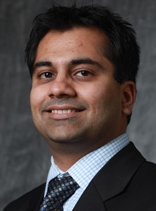 This talk will present the breadth of research activities in the Intelligent Systems, Automation & Control Laboratory at Rensselaer Polytechnic Institute, ranging from building systems control to additive manufacturing and adaptive optics. In particular, we will focus on the modeling and control design paradigms for intelligent building systems and smart LED lighting systems. Since building systems have substantial variability of occupancy, usage, ambient environment, and physical properties over time, strategies for "model-free" control algorithms for building temperature control will be illustrated. The seminar will also discuss the state-of-the-art in feedback control of lighting systems and demonstrate the efficacy of distributed control and consensus type algorithms for these large-scale lighting systems. Finally, some interesting examples of bio-inspired estimation from blurry images for adaptive optics will be presented.
This talk will present the breadth of research activities in the Intelligent Systems, Automation & Control Laboratory at Rensselaer Polytechnic Institute, ranging from building systems control to additive manufacturing and adaptive optics. In particular, we will focus on the modeling and control design paradigms for intelligent building systems and smart LED lighting systems. Since building systems have substantial variability of occupancy, usage, ambient environment, and physical properties over time, strategies for "model-free" control algorithms for building temperature control will be illustrated. The seminar will also discuss the state-of-the-art in feedback control of lighting systems and demonstrate the efficacy of distributed control and consensus type algorithms for these large-scale lighting systems. Finally, some interesting examples of bio-inspired estimation from blurry images for adaptive optics will be presented.
-
- Date & Time: Tuesday, July 16, 2013; 12:00 PM
Speaker: Dr. Michael Tiller, Xogeny Abstract 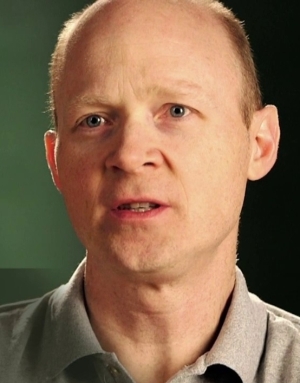 Model-based System Engineering has been recognized, for some time, as a way for companies to improve their product development processes. However, change takes time in engineering and we still have only scratched the surface of what is possible. New ideas and technologies are constantly emerging that can improve a model-based approach. In this talk, I will discuss some of my past experiences with model-based system engineering in the automotive industry. I'll also discuss the shifts I see from numerical approaches to more symbolic approaches and how this manifests itself in a shift from imperative representations of engineering models to more declarative ones. I'll cover some of the interesting challenges I've seen trying to model automotive systems and how I think those challenges can be overcome moving forward. Finally, I'll talk about some of the exciting possibilities I see on the horizon for modeling.
Model-based System Engineering has been recognized, for some time, as a way for companies to improve their product development processes. However, change takes time in engineering and we still have only scratched the surface of what is possible. New ideas and technologies are constantly emerging that can improve a model-based approach. In this talk, I will discuss some of my past experiences with model-based system engineering in the automotive industry. I'll also discuss the shifts I see from numerical approaches to more symbolic approaches and how this manifests itself in a shift from imperative representations of engineering models to more declarative ones. I'll cover some of the interesting challenges I've seen trying to model automotive systems and how I think those challenges can be overcome moving forward. Finally, I'll talk about some of the exciting possibilities I see on the horizon for modeling.
-
 A recurrent neural network (RNN) is a class of neural network models where connections between its neurons form a directed cycle. This creates an internal state of the network which allows it to exhibit dynamic temporal behavior. Recently the RNN-based acoustic models greatly improved automatic speech recognition (ASR) accuracy on many tasks, such as an advanced version of the RNN, which exploits a structure called long-short-term memory (LSTM). However, ASR performance with distant microphones, low resources, noisy, reverberant conditions, and on multi-talker speech are still far from satisfactory as compared to humans. To address these issues, we develop new strucute of RNNs inspired by two principles: (1) the structure follows the intuition of human speech recognition; (2) the structure is easy to optimize. The talk will go beyond basic RNNs, introduce prediction-adaptation-correction RNNs (PAC-RNNs) and highway LSTMs (HLSTMs). It studies both uni-directional and bi-direcitonal RNNs and discriminative training also applied on top the RNNs. For efficient training of such RNNs, the talk will describe two algorithms for learning their parameters in some detail: (1) Latency-Controlled bi-directional model training; and (2) Two pass forward computation for sequence training. Finally, this talk will analyze the advantages and disadvantages of different variants and propose future directions.
A recurrent neural network (RNN) is a class of neural network models where connections between its neurons form a directed cycle. This creates an internal state of the network which allows it to exhibit dynamic temporal behavior. Recently the RNN-based acoustic models greatly improved automatic speech recognition (ASR) accuracy on many tasks, such as an advanced version of the RNN, which exploits a structure called long-short-term memory (LSTM). However, ASR performance with distant microphones, low resources, noisy, reverberant conditions, and on multi-talker speech are still far from satisfactory as compared to humans. To address these issues, we develop new strucute of RNNs inspired by two principles: (1) the structure follows the intuition of human speech recognition; (2) the structure is easy to optimize. The talk will go beyond basic RNNs, introduce prediction-adaptation-correction RNNs (PAC-RNNs) and highway LSTMs (HLSTMs). It studies both uni-directional and bi-direcitonal RNNs and discriminative training also applied on top the RNNs. For efficient training of such RNNs, the talk will describe two algorithms for learning their parameters in some detail: (1) Latency-Controlled bi-directional model training; and (2) Two pass forward computation for sequence training. Finally, this talk will analyze the advantages and disadvantages of different variants and propose future directions. Thanks to advanced "internet of things" (IoT) technologies, situation-specific human behavior has become an area of development for practical applications involving signal processing. One important area of development of such practical applications is driving behavior research. Since 1999, I have been collecting driving behavior data in a wide range of signal modalities, including speech/sound, video, physical/physiological sensors, CAN bus, LIDAR and GNSS. The objective of this data collection is to evaluate how well signal models can represent human behavior while driving. In this talk, I would like to summarize our 10 years of study of driving behavior signal processing, which has been based on these signal corpora. In particular, statistical signal models of interactions between traffic contexts and driving behavior, i.e., stochastic driver modeling, will be discussed, in the context of risky lane change detection. I greatly look forward to discussing the scalability of such corpus-based approaches, which could be applied to almost any traffic situation.
Thanks to advanced "internet of things" (IoT) technologies, situation-specific human behavior has become an area of development for practical applications involving signal processing. One important area of development of such practical applications is driving behavior research. Since 1999, I have been collecting driving behavior data in a wide range of signal modalities, including speech/sound, video, physical/physiological sensors, CAN bus, LIDAR and GNSS. The objective of this data collection is to evaluate how well signal models can represent human behavior while driving. In this talk, I would like to summarize our 10 years of study of driving behavior signal processing, which has been based on these signal corpora. In particular, statistical signal models of interactions between traffic contexts and driving behavior, i.e., stochastic driver modeling, will be discussed, in the context of risky lane change detection. I greatly look forward to discussing the scalability of such corpus-based approaches, which could be applied to almost any traffic situation. Driving requires a complex skill that is involved with the vehicle itself (e.g., speed control and instrument operation), other road users (e.g., other vehicles, pedestrians), surrounding environment, and so on. During driving, visual cues are the main source to supply information to the brain. In order to stabilize the visual information when you are moving, the eyes move to the opposite direction based on the input to the vestibular system. This involuntary eye movement is called as the vestibulo-ocular reflex (VOR) and the physiological models have been studied so far. Obinata et al. found that the VOR can be used to estimate mental workload. Since then, our research group has been developing methods to quantitatively estimate mental workload during driving by means of reflex eye movement. In this talk, I will explain the basic mechanism of the reflex eye movement and how to apply for mental workload estimation. I also introduce the latest work to combine the VOR and OKR (optokinetic reflex) models for naturalistic driving environment.
Driving requires a complex skill that is involved with the vehicle itself (e.g., speed control and instrument operation), other road users (e.g., other vehicles, pedestrians), surrounding environment, and so on. During driving, visual cues are the main source to supply information to the brain. In order to stabilize the visual information when you are moving, the eyes move to the opposite direction based on the input to the vestibular system. This involuntary eye movement is called as the vestibulo-ocular reflex (VOR) and the physiological models have been studied so far. Obinata et al. found that the VOR can be used to estimate mental workload. Since then, our research group has been developing methods to quantitatively estimate mental workload during driving by means of reflex eye movement. In this talk, I will explain the basic mechanism of the reflex eye movement and how to apply for mental workload estimation. I also introduce the latest work to combine the VOR and OKR (optokinetic reflex) models for naturalistic driving environment. Recently, there has been a great increase of interest in the field of emotion recognition based on different human modalities, such as speech, heart rate etc. Emotion recognition systems can be very useful in several areas, such as medical and telecommunications. In the medical field, identifying the emotions can be an important tool for detecting and monitoring patients with mental health disorder. In addition, the identification of the emotional state from voice provides opportunities for the development of automated dialogue system capable of producing reports to the physician based on frequent phone communication between the system and the patients. In this talk, we will describe a health related application of using emotion recognition system based on human voices in order to detect and monitor the emotion state of people.
Recently, there has been a great increase of interest in the field of emotion recognition based on different human modalities, such as speech, heart rate etc. Emotion recognition systems can be very useful in several areas, such as medical and telecommunications. In the medical field, identifying the emotions can be an important tool for detecting and monitoring patients with mental health disorder. In addition, the identification of the emotional state from voice provides opportunities for the development of automated dialogue system capable of producing reports to the physician based on frequent phone communication between the system and the patients. In this talk, we will describe a health related application of using emotion recognition system based on human voices in order to detect and monitor the emotion state of people. The classic work by G.I. Taylor describes the enhanced longitudinal diffusivity of a passive tracer subjected to laminar pipe flow. Much work since then has gone into extending this result particularly in calculating the evolution of the scalar variance. However, less work has been done to describe the evolution of asymmetry in the distribution. We present the results from a modeling effort to understand how the higher moments of the tracer distribution depend on geometry based off of explicit results in the circular pipe. We do this via analysis of "channel-limiting" geometries (rectangular ducts and elliptical pipes parameterized by their aspect ratio), using both new analytical tools and Monte Carlo simulation, which have revealed a wealth of nontrivial behavior of the distributions at short and intermediate time.
The classic work by G.I. Taylor describes the enhanced longitudinal diffusivity of a passive tracer subjected to laminar pipe flow. Much work since then has gone into extending this result particularly in calculating the evolution of the scalar variance. However, less work has been done to describe the evolution of asymmetry in the distribution. We present the results from a modeling effort to understand how the higher moments of the tracer distribution depend on geometry based off of explicit results in the circular pipe. We do this via analysis of "channel-limiting" geometries (rectangular ducts and elliptical pipes parameterized by their aspect ratio), using both new analytical tools and Monte Carlo simulation, which have revealed a wealth of nontrivial behavior of the distributions at short and intermediate time. This talk will describe a method to stabilize a plant with a network of resource-constrained wireless nodes. As opposed to traditional networked control schemes where the nodes simply route information to and from a dedicated controller, our approach treats the network itself as the controller. Specifically, we formulate a strategy where each node repeatedly updates its state to be a linear combination of the states of neighboring nodes. We show that this causes the entire network to behave as a linear dynamical system, with sparsity constraints imposed by the network topology. We provide a numerical design procedure to determine the appropriate linear combinations for each node so that the transmissions of the nodes closest to the actuators are stabilizing. We also make connections to decentralized control theory and the concept of fixed modes to provide topological conditions under which stabilization is possible. We show that this "Wireless Control Network" requires low computational and communication overhead, simplifies transmission scheduling, and enables compositional design. We also consider the issue of security in this control scheme. Using structured system theory, we show that a certain number of malicious or misbehaving nodes can be detected and identified provided that the connectivity of the network is sufficiently high.
This talk will describe a method to stabilize a plant with a network of resource-constrained wireless nodes. As opposed to traditional networked control schemes where the nodes simply route information to and from a dedicated controller, our approach treats the network itself as the controller. Specifically, we formulate a strategy where each node repeatedly updates its state to be a linear combination of the states of neighboring nodes. We show that this causes the entire network to behave as a linear dynamical system, with sparsity constraints imposed by the network topology. We provide a numerical design procedure to determine the appropriate linear combinations for each node so that the transmissions of the nodes closest to the actuators are stabilizing. We also make connections to decentralized control theory and the concept of fixed modes to provide topological conditions under which stabilization is possible. We show that this "Wireless Control Network" requires low computational and communication overhead, simplifies transmission scheduling, and enables compositional design. We also consider the issue of security in this control scheme. Using structured system theory, we show that a certain number of malicious or misbehaving nodes can be detected and identified provided that the connectivity of the network is sufficiently high. In acoustics, one may wish to acquire a wavefield over a whole spatial domain, while we can only make point measurements (ie, with microphones). Even with few sources, this remains a difficult problem because of reverberation, which can be hard to characterize. This can be seen as a sampling / interpolation problem, and it raises a number of interesting questions: how many sample points are needed, where to choose the sampling points, etc. In this presentation, we will review some case studies, in 2D (vibrating plates) and 3D (room acoustics), with numerical and experimental data, where we have developed sparse models, possibly with additional 'structures', based on a physical modeling of the acoustic field. These type of models are well suited to reconstruction techniques known as compressed sensing. These principles can also be used for sub-nyquist optical imaging : we will show preliminary experimental results of a new compressive imager, remarkably simple in its principle, using a multiply scattering medium.
In acoustics, one may wish to acquire a wavefield over a whole spatial domain, while we can only make point measurements (ie, with microphones). Even with few sources, this remains a difficult problem because of reverberation, which can be hard to characterize. This can be seen as a sampling / interpolation problem, and it raises a number of interesting questions: how many sample points are needed, where to choose the sampling points, etc. In this presentation, we will review some case studies, in 2D (vibrating plates) and 3D (room acoustics), with numerical and experimental data, where we have developed sparse models, possibly with additional 'structures', based on a physical modeling of the acoustic field. These type of models are well suited to reconstruction techniques known as compressed sensing. These principles can also be used for sub-nyquist optical imaging : we will show preliminary experimental results of a new compressive imager, remarkably simple in its principle, using a multiply scattering medium. There are growing needs to accelerate computer vision algorithms on embedded processors for wide-ranging equipment including mobile phones, network cameras, robots, and automotive safety systems. In our Vision R&D group, we conduct various projects to understand how the vision requirements can be best addressed on Digital Signal Processors (DSP), where the compute bottlenecks are, and how we should evolve our hardware & software architectures to meet our customers' future needs. Towards this end, we build prototypes wherein we design and optimize embedded software for real-world application performance and robustness. In this talk, I will provide examples of vision problems that we have recently tackled.
There are growing needs to accelerate computer vision algorithms on embedded processors for wide-ranging equipment including mobile phones, network cameras, robots, and automotive safety systems. In our Vision R&D group, we conduct various projects to understand how the vision requirements can be best addressed on Digital Signal Processors (DSP), where the compute bottlenecks are, and how we should evolve our hardware & software architectures to meet our customers' future needs. Towards this end, we build prototypes wherein we design and optimize embedded software for real-world application performance and robustness. In this talk, I will provide examples of vision problems that we have recently tackled. Although there are many fault diagnosis algorithms available, there has been very little work on the design or modification of control inputs with the aim of increasing the detectability and isolability of faults. The use of such inputs has clear potential for overcoming a central difficulty in fault detection, which is to distinguish the effects of faults from those of disturbances, process uncertainties, etc. Accordingly, the use of active inputs could be a transformative technology in industry, provided that such inputs can be computed reliably and efficiently.
Although there are many fault diagnosis algorithms available, there has been very little work on the design or modification of control inputs with the aim of increasing the detectability and isolability of faults. The use of such inputs has clear potential for overcoming a central difficulty in fault detection, which is to distinguish the effects of faults from those of disturbances, process uncertainties, etc. Accordingly, the use of active inputs could be a transformative technology in industry, provided that such inputs can be computed reliably and efficiently. Coordinate coupling raises serious numerical, analysis, and control design problems that grow with the size of the system. On the other hand, decoupled dynamic equations facilitate all of the above processes since each equation can be treated independently. Unfortunately, due to the inherent heterogeneity typical of most practical, complex systems, these are not naturally decoupled so developing accurate enough decoupled approximations is of interest.
Coordinate coupling raises serious numerical, analysis, and control design problems that grow with the size of the system. On the other hand, decoupled dynamic equations facilitate all of the above processes since each equation can be treated independently. Unfortunately, due to the inherent heterogeneity typical of most practical, complex systems, these are not naturally decoupled so developing accurate enough decoupled approximations is of interest. We show that real electricity-use patterns can be distinguished using a Bayesian nonparametric model based on the Dirichlet Process Mixture Model. By modelling the load profiles as discrete counters we make use of the Dirichlet-Multinomial distribution. Clusters are computed with the Chinese Restaurant Process method and posterior probabilities distributions estimated with a Gibbs sampling algorithm.
We show that real electricity-use patterns can be distinguished using a Bayesian nonparametric model based on the Dirichlet Process Mixture Model. By modelling the load profiles as discrete counters we make use of the Dirichlet-Multinomial distribution. Clusters are computed with the Chinese Restaurant Process method and posterior probabilities distributions estimated with a Gibbs sampling algorithm. This talk will present the breadth of research activities in the Intelligent Systems, Automation & Control Laboratory at Rensselaer Polytechnic Institute, ranging from building systems control to additive manufacturing and adaptive optics. In particular, we will focus on the modeling and control design paradigms for intelligent building systems and smart LED lighting systems. Since building systems have substantial variability of occupancy, usage, ambient environment, and physical properties over time, strategies for "model-free" control algorithms for building temperature control will be illustrated. The seminar will also discuss the state-of-the-art in feedback control of lighting systems and demonstrate the efficacy of distributed control and consensus type algorithms for these large-scale lighting systems. Finally, some interesting examples of bio-inspired estimation from blurry images for adaptive optics will be presented.
This talk will present the breadth of research activities in the Intelligent Systems, Automation & Control Laboratory at Rensselaer Polytechnic Institute, ranging from building systems control to additive manufacturing and adaptive optics. In particular, we will focus on the modeling and control design paradigms for intelligent building systems and smart LED lighting systems. Since building systems have substantial variability of occupancy, usage, ambient environment, and physical properties over time, strategies for "model-free" control algorithms for building temperature control will be illustrated. The seminar will also discuss the state-of-the-art in feedback control of lighting systems and demonstrate the efficacy of distributed control and consensus type algorithms for these large-scale lighting systems. Finally, some interesting examples of bio-inspired estimation from blurry images for adaptive optics will be presented. Model-based System Engineering has been recognized, for some time, as a way for companies to improve their product development processes. However, change takes time in engineering and we still have only scratched the surface of what is possible. New ideas and technologies are constantly emerging that can improve a model-based approach. In this talk, I will discuss some of my past experiences with model-based system engineering in the automotive industry. I'll also discuss the shifts I see from numerical approaches to more symbolic approaches and how this manifests itself in a shift from imperative representations of engineering models to more declarative ones. I'll cover some of the interesting challenges I've seen trying to model automotive systems and how I think those challenges can be overcome moving forward. Finally, I'll talk about some of the exciting possibilities I see on the horizon for modeling.
Model-based System Engineering has been recognized, for some time, as a way for companies to improve their product development processes. However, change takes time in engineering and we still have only scratched the surface of what is possible. New ideas and technologies are constantly emerging that can improve a model-based approach. In this talk, I will discuss some of my past experiences with model-based system engineering in the automotive industry. I'll also discuss the shifts I see from numerical approaches to more symbolic approaches and how this manifests itself in a shift from imperative representations of engineering models to more declarative ones. I'll cover some of the interesting challenges I've seen trying to model automotive systems and how I think those challenges can be overcome moving forward. Finally, I'll talk about some of the exciting possibilities I see on the horizon for modeling.